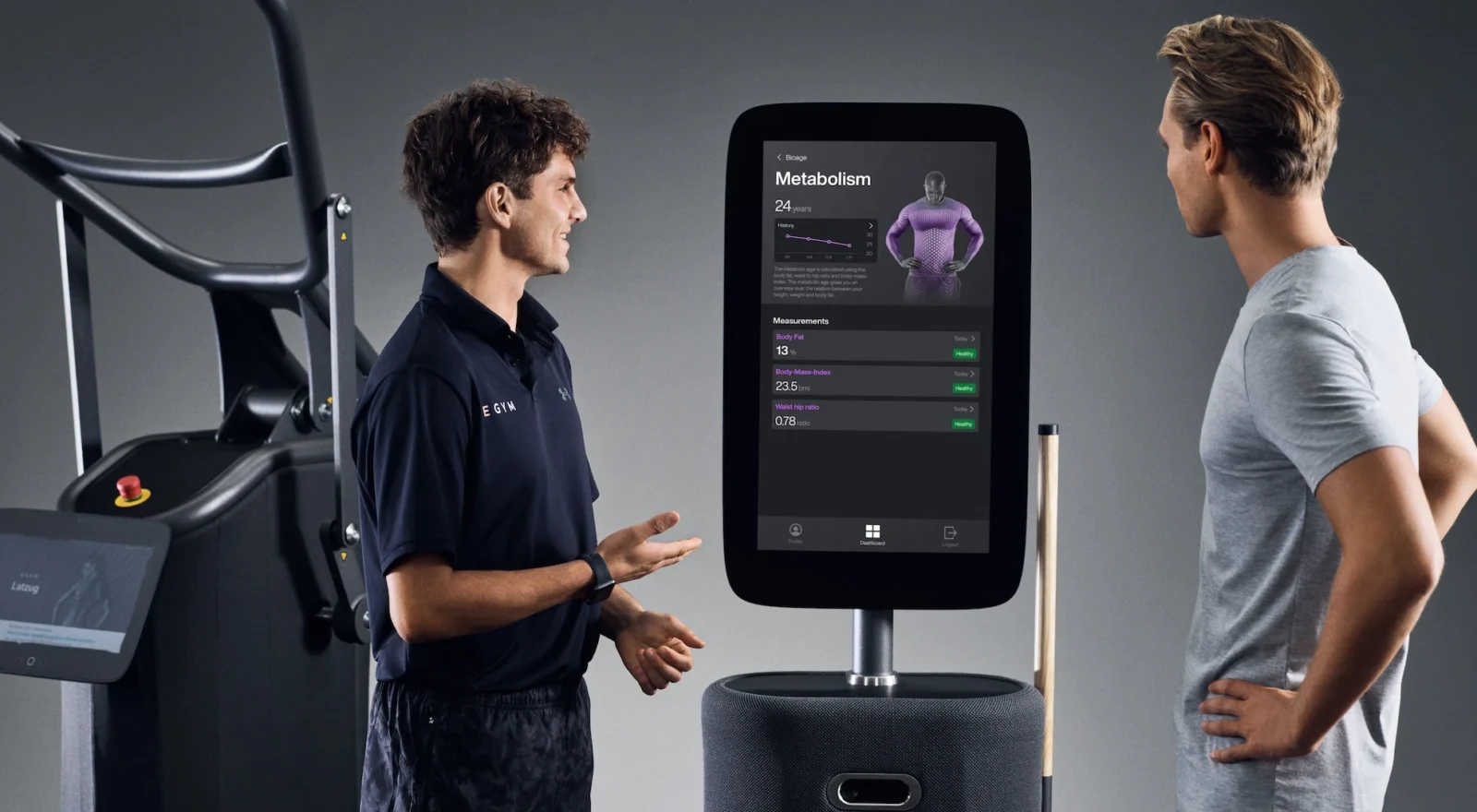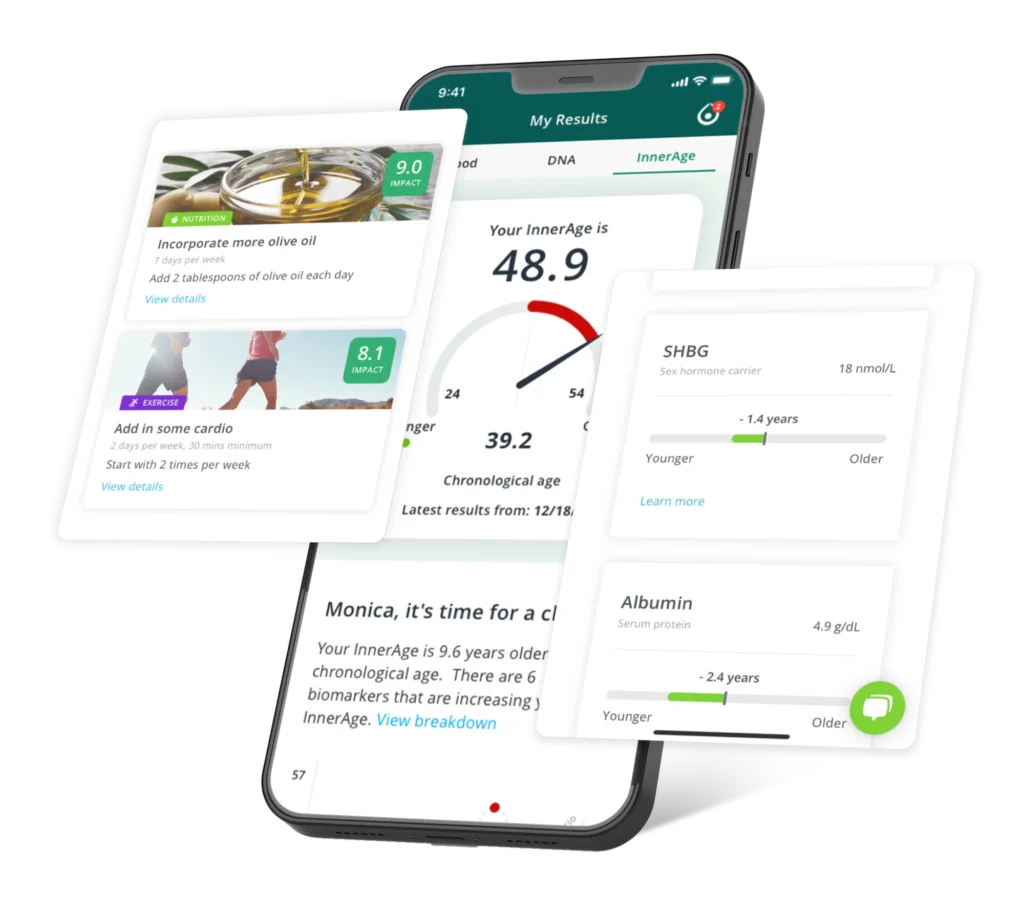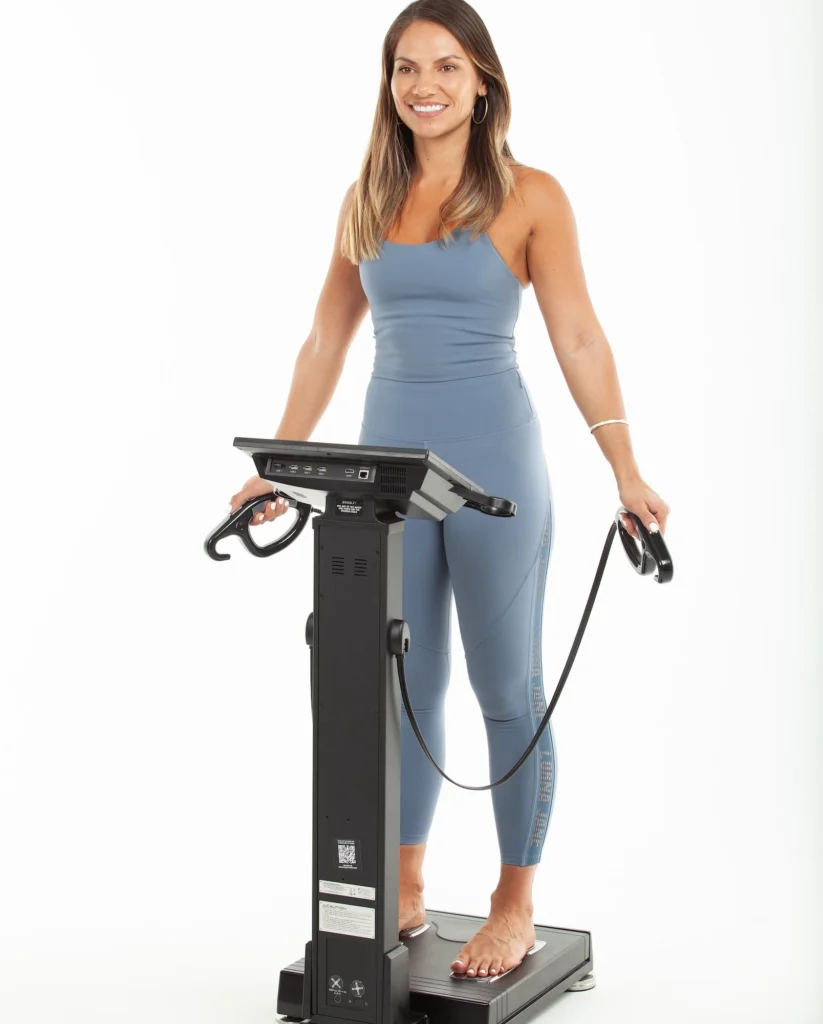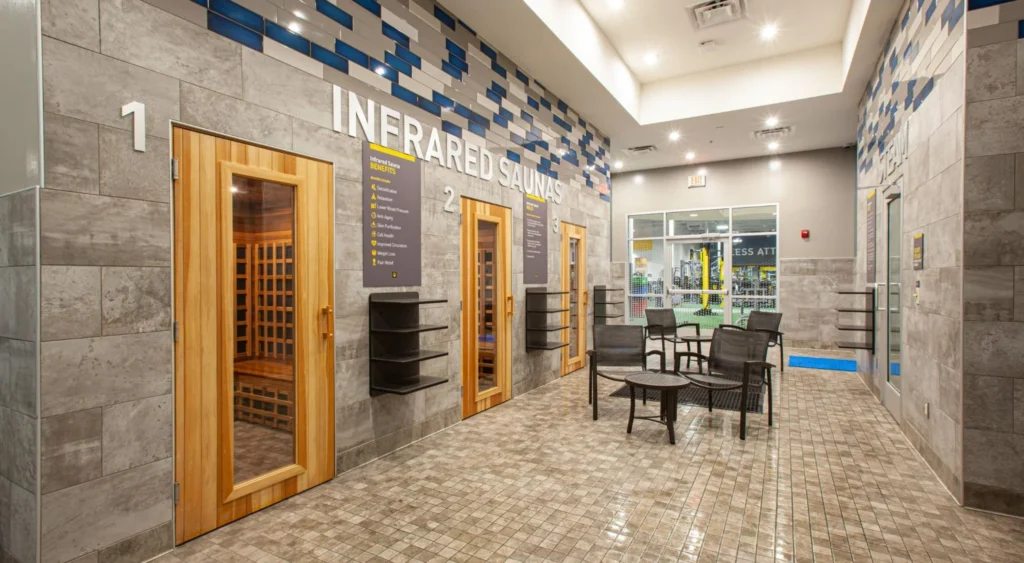The Gym as a Clinic: Fitness Facilities Embrace Health & Longevity

With barriers to traditional healthcare on the rise, fitness facilities are emerging as essential players in preventative health
The growing interest in longevity, combined with the failures of the current American healthcare system, has created space for gyms and wellness facilities to meet the needs of disenchanted patients (70% of whom believe the healthcare system fails to meet their needs in at least one way, according to Harris Poll data) and wellness seekers looking to live life to the fullest.
Barriers to healthcare — such as insufficient insurance coverage, staffing shortages and long waits for appointments — have thrust fitness facilities into the spotlight as an accessible solution to preventative health and wellness.
With innovations like longevity-centered memberships, high-tech health tools, the embracing of recovery zones in high-value, low-priced gyms and smart gym equipment that delivers a customized and movement-based prescription, the fitness industry is quickly transforming into a viable and valuable supplement to traditional healthcare.
Here is what some of those at the forefront of fitness are doing in the name of health and longevity.
Longevity-Centered Memberships & Programming
Unsurprisingly, luxury lifestyle and fitness brand Equinox is among the leaders in the growing longevity space, as seen with its new Optimize by Equinox program, a membership program that integrates biomarker testing from Function Health with a personalized health regimen. Each Optimize member is assigned a dedicated team of health and wellness experts covering fitness, nutrition, sleep and massage.
The celeb-loved Equinox has made no secret of its intentions to tap into the health landscape, even adding a Health Advisory Board of top medical and wellness experts and academics to inform its programming for 2024 and beyond.
“We really are a way of living brand more than we are a fitness brand,” Klim said, noting Equinox’s four pillars — movement, nutrition, regeneration and community,” said Julia Klim, vice president of strategic partnerships and business development at Equinox, “We’re innovating to getting closer to healthcare and doing more personalization.”
Fitness SF, a group of eight health clubs in the Bay Area, is also breaking ground in longevity memberships. The fitness operator is working with health tech startup InsideTracker to roll out biomarker testing as part of a “reimagined membership” that includes a one-time DNA analysis (for baseline measurement purposes) and biannual blood biomarker testing to track progress. The results are intended to guide Fitness SF’s training services, hyper-personalizing the experience for its members.
“Our dedication to an emerging future is shown through our commitment to personalized diagnostics that produce significant results,” Fitness SF president Zsolt Jackovics said.
24 Hour Fitness is taking a different approach, launching new fitness formats in partnership with SH1FT Fitness —Modus Move and Modus Mobility—that are focused on recovery training and longevity.
Both programs offer members a “prehab” approach to stability and neuromuscular activation (Move) and active recovery and range of motion (Mobility), delivered within a small group setting.
“These classes have been meticulously designed around the latest scientific research to deliver real change to our members,” said Mike Heim, head of programming and education for 24 Hour Fitness. “Longevity training or ‘fitness for life,’ is an area that is far too underserved in group exercise – but it’s incredibly important to us at 24 Hour Fitness. Having both of these programs helps our members get the sort of fitness benefits they can enjoy today and for the rest of their lives.”

Body Scanning & Personalized Health Tech
Australian tech company Evolt exists at a pivotal time when consumers are desiring a true “behind the scenes” look at their health and weight loss medication promises to be a transformative measure.
Evolt uses advanced body scanning technology to deliver a comprehensive view of an individual’s body composition, with the ability to distinguish between muscle and fat. The brand delivers that data on an app so users can track progress.
“The Evolt 360 bridges the gap between health aspirations and tangible results, transforming data into actionable strategies that enhance long-term engagement and success in wellness,” Evolt co-founder and CEO Ed Zouroudis said of the model, adding that it’s ideal for gyms looking to increase membership numbers.
Evolt also offers individualized macronutrient profiles so members can understand the protein, carbs and fat they require on a daily basis — particularly important for those using GLP-1 medications.
Seca TRU, also committed to giving consumers a clear picture of their health, offers a full-body test with its Body Composition Solution, a system that analyzes health and wellness using key metrics while boosting engagement for gyms and fitness facilities and sparking motivation for members.
The Seca TRU Body Composition Solution takes into account a user’s age, gender and ethnicity while assessing muscle mass, fat mass, energy expenditure and recovery levels.
“Traditional metrics like weight do not fully capture the internal changes occurring in their bodies,” Seca executive vice president of Sales and Marketing Duane Jones explained. “The TRU Body Composition Solution provides a more comprehensive view by setting baselines, which then allows gym goers to establish goals that more accurately reflect their overall health status.”
InBody, a pioneer in medical body scanning with machines found at countless facilities, including Dr. Frank Lipman’s well-known clinic in New York City and Fitness SF gyms, has made its state-of-the-art body composition devices available to wellness facilities of all sizes with a leasing program.
Not only does the leasing program help fitness and wellness-related businesses attract and retain members with the latest devices, it also helps users receive comprehensive insights into their muscle and fat distribution, hydration, cellular health, water retention levels and more.
“This program makes technological obsolescence itself obsolete,” said InBody’s vice president of sales Daniel Park. “Instead of buying a product that will eventually go out of date, you pay for a service that includes ongoing maintenance and get new upgrades as needed.”
In yet another endeavor to empower consumers with rich health insights, BellSant turns a smartphone into a personal health advisor, with users undergoing blood, physical and mental tests every three to six months. The digital wellness platform also tracks biological age while providing feedback on exercise, nutrition and daily habits.
“The tools most people are using today are very piecemeal, a wearable device trying to tell you it can score your health based on an optical sensor on your wrist, a CGM telling you glucose spikes should be your obsession, or a supplement telling you that they’ve solved the root cause of aging,” BellSant co-founder and head of product Rick Bowman said. “We create a deeper way to track health regularly.”
“We avoided day-to-day recovery scores to focus on your long-term health and wellbeing,” Bowman added. “By measuring your actual body and your functional capabilities, we give you a true sense over time of how your body and mind are evolving and how you can prioritize where you intervene.”

HVLP Gyms Embrace Recovery
High-value, low-price (HVLP) fitness operators may be budget-friendly, but they sure aren’t skimping on recovery and relaxation offerings for their members.
Crunch Fitness is not only rapidly growing its footprint but is also steadily focused on recovery, with plans to build upon its “Relax & Recovery” offerings. The “No Judgments” fitness franchise currently offers HydroMassage, saunas and steam rooms at select locations.
“We believe recovery is emerging as a noteworthy trend as more consumers begin to understand its importance for health and longevity – from reducing the risk of injury to enhancing performance and promoting overall well-being,” Crunch president Chequan Lewis said. “For many fitness enthusiasts, recovery will become a fundamental component of their fitness regimen.”
Planet Fitness, the current leader in the HVLP space with almost 20 million members, is also enhancing its recovery offerings. Currently, the PF Black Card membership includes recovery amenities like access to massage chairs and HydroMassage loungers from WellnessSpace Brands. Additionally, some Planet Fitness locations also offer CryoLounge+ chairs and RelaxSpace Wellness Pods, also from WellnessSpace Brands, to help members recover and relax before or after a workout.
Chuze Fitness is also keen on recovery, offering its members access to HydroMassage, infrared and traditional saunas, CryoLounge chairs and RelaxSpace Wellness Pods at select locations.
The recovery focus has spilled over into Chuze Fitness classes, with the fitness operator taking note that consumers have become interested in modalities that promote mental well-being in a post-COVID setting.
“We’ve also put additional emphasis into connecting mental well-being and physical exercise by leaning into enhancing our mind/body class options such as infrared heated yoga and Pilates,” Chuze Fitness co-founder and CEO Cory Brightwell said.
EoS Fitness is undergoing a multi-million dollar reinvestment in its gyms this year, seemingly sparing no expense on recovery offerings. Some new facilities boast “The Tank,” a place for EoS premium membership holders to enjoy recovery products such as Hypervolt Percussion Massagers and Normatec Compression Boots from Hyperice, and the Evolt 360 body composition scanner. At select locations, some EoS Fitness gyms offer assisted stretch services.
“When we say we are the (high-value, low-price) gym, we are speaking to our culture of constant innovation and drive to bring our members the most value for the investment they are making in themselves when they come to EoS Fitness,” EoS Fitness chief operating officer Richard Idgar said.

Smart Equipment Gets Personal
Personalized health insights are also being realized through innovative smart equipment found in leading gyms and fitness facilities, with EGYM and Technogym leading the charge with technology that appeals to a wide range of users and keeps them engaged with their gym provider.
EGYM’s new BioAge system gives users a measurable approach to the state of their fitness and wellness, accounting for strength, cardio, flexibility and metabolism. It offers users immediate and valuable feedback, determining their BioAge and informing users of areas in need of improvement.
The system keeps users engaged by its ability to detect progress faster than a scale, ensuring fitness enthusiasts remain motivated.
“Unfortunately in our industry, usually it’s all about what a member sees on the scale,” said Dana Milkie, EGYM’s General Manager for North America. “It can be a little demotivating, particularly in the first three or four weeks when you’re starting to exercise, trying to change your body, and you don’t see anything on the scale. From a BioAge perspective, you begin to see changes very quickly as whatever biological age you started at begins to go down.”
Technogym’s new AI-based assessment station, Technogym Checkup, captures a user’s true state by scanning their body composition and analyzing their strength, balance, mobility and cognitive abilities and provides a “Wellness Age” that is more valuable than a biological age. Users then receive a personalized prescription of training protocols that evolve with the assistance of artificial intelligence. As users make progress with Technogym’s results-driven technology, they will discover their Wellness Age decreases.
“Our AI-based assessment station … represents the access point to the ecosystem in order to measure physical and cognitive parameters and to a fully personalized program for every single individual that evolves over time thanks to AI,” said Nerio Alessandri, Technogym founder and CEO.



